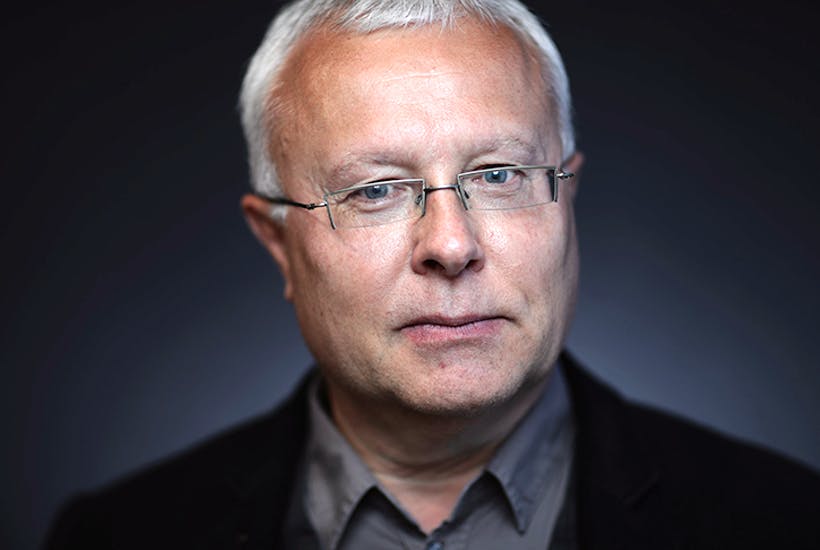Who wants to be a billionaire? Not, apparently, Alexander Lebedev, the self-described ‘Russian ex-oligarch’ who has tried billionaredom and found it not to his liking. Lebedev opens his new book, Hunt the Banker, with a nostalgic riff on his happy youth in a tiny Moscow apartment and the observation that ‘the ideal menu consists of buckwheat (60 cents a kilo), extra virgin flaxseed oil, vegetables and a little fish’. Money, he reckons, ‘warms only a shallow soul. It shrivels the heart, gives no peace, and problems proliferate’.
Why, then, did Lebedev leave a comfortable post as a KGB spy in London to pursue a career in banking in post-Soviet Russia? ‘A desire to accumulate experience and know the system from the inside,’ he says — the same reason, apparently, that drove him to become a Duma deputy, run for mayor of Sochi and Moscow, and later become a British media mogul via his co-ownership with son Evgeny of the Independent and the Evening Standard.
Sitting in Evgeny’s pop art-decorated office at the Standard’s Derry Street headquarters in Kensington, Lebedev appears every inch the oligarch that he insists he no longer is. He wears an artfully frayed designer jacket with sneakers and looks sleek, fit and younger than his 59 years. So what makes him different from other Russian plutocrats? ‘They don’t write books,’ he says. ‘And I’m no longer on the Forbes [rich] list. My business was destroyed by Chekists’: Chekist being pejorative slang for KGB, and later FSB, men — which is what Lebedev himself was. Or, if you subscribe to Vladimir Putin’s famous dictum that there’s ‘no such thing as a former KGB man’, what he still is.
Hunt the Banker is a strange confection of autobiography and sociopolitical manifesto. Lebedev’s career path — from the Soviet Academy of Sciences, a foreign posting to Libya, recruitment by the KGB’s first chief directorate and his posting as a spy in London in 1988 and then transfer to the economic security unit of Russia’s newly formed foreign intelligence service in 1992 — is all covered in a few pages.








Comments
Join the debate for just £1 a month
Be part of the conversation with other Spectator readers by getting your first three months for £3.
UNLOCK ACCESS Just £1 a monthAlready a subscriber? Log in